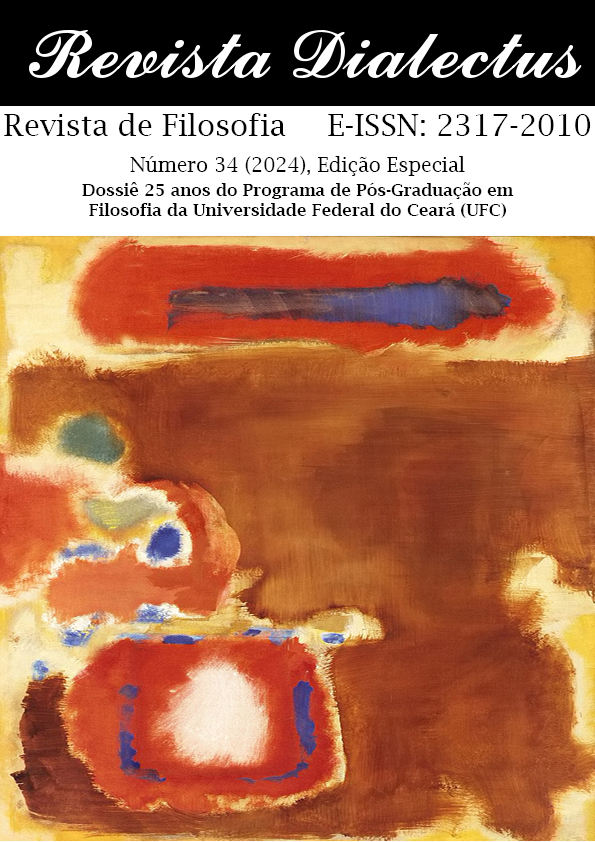UMA PARÁBOLA COMENTADA DA RAZÃO
DOI:
https://doi.org/10.30611/2024n34id94590Keywords:
Razão, Segurança doxástica, Sentido de plausibilidadeAbstract
Este ensaio pretende dar uma pequena contribuição para o esforço de tornar mais precisa a compreensão filosófica do conceito de razão, o que é feito em dois movimentos principais. O primeiro movimento apresenta uma parábola sobre o funcionamento da razão, a saber, a estória do Rei Epoqueu e seu conselho. O efeito intencionado é de que o modus operandi da razão seja espelhado pela interação entre as perguntas do rei Epoqueu e os métodos adotados pelo seu conselho para emitir respostas seguras e plausíveis. O segundo movimento consiste em uma análise filosófica da parábola. Tal análise endossa a visão de que a razão é antes de tudo uma capacidade de dar e avaliar razões, e destaca os limites dessa capacidade, bem como os obstáculos ao consenso racional. A discussão culmina com uma reflexão sobre a impossibilidade intrínseca da legitimação racional da razão, e com a sugestão de que nossa confiança na razão provém de algo além da razão.
References
PASCAL, B. Pensées. Dover Publications, 2018
POLLOCK, J. L. Knowledge and Justification. Princeton, New Jersey: Princeton University Press, 1974.
WITTGENSTEIN, L. On Certainty. Oxford: Basil Blackwell, 1969.
WITTGENSTEIN, L. Philosophical Investigations. 2nd edition. Blackwell Publishers, 1997.
Downloads
Published
Issue
Section
License
Copyright (c) 2024 Cícero Antônio Cavalcante Barroso

This work is licensed under a Creative Commons Attribution-NonCommercial-NoDerivatives 4.0 International License.
Authors who publish in this journal agree to the following terms:
- Authors retain the copyright and grant the journal the right of first publication, with the work simultaneously licensed under the Attribution-NonCommercial-NoDerivatives 4.0 International (CC BY-NC-ND 4.0) License, which allows the non-commercial sharing of work, without modifications and with acknowledgment of authorship and initial publication in this journal.
- Authors are authorized to take additional contracts separately, for non-exclusive distribution of the version of the work published in this journal (eg publish in institutional repository or as a book chapter), with acknowledgment of authorship and initial publication in this journal.
- Authors are allowed and encouraged to publish and distribute their work online (eg in institutional repositories or on their personal page) at any point before or during the editorial process, as this can generate productive changes as well as increase the impact and citation of published work (See The Free Access Effect).



















